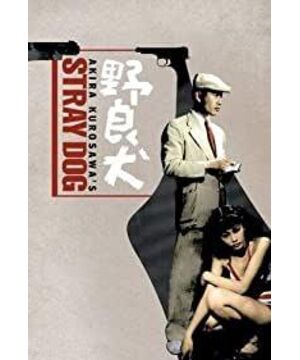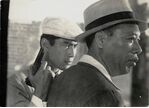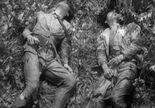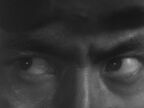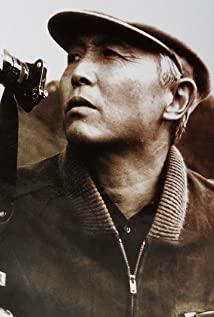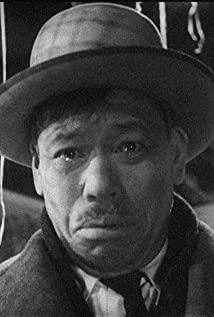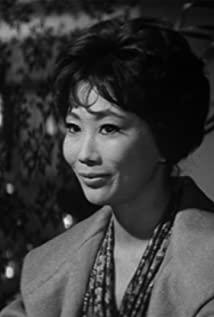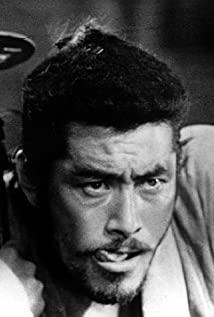The case of Akira Kurosawa's theft of a police pistol evokes the misery of the life of the lower-class people in post-war Japan.
1. One destiny, two lives
When I was in elementary school, my brother once asked me a question: "Do you believe in destiny?"
I said, "I believe in the destiny that comes with hard work. Destiny is there, but it can only be achieved through hard work."
Maybe we once had a bright future, but we went wrong on a fork in the road, and finally embarked on a completely opposite life.
When I was in the first and second grades of elementary school, my family was poor, and I had the problem of stealing. Until one day, I was discovered that the mother-in-law of the small shop was chasing me all over the street, knowing the shame and never doing it again.
Later, I used to think, is there a moment when I go down a completely different path once I go the wrong way?
For many people, the problem is the college entrance examination, but for the protagonist in the film, it is his backpack being stolen when he returns home from military demobilization. What kind of society would steal the backpacks of demobilized soldiers? The reason for the suspect's depravity is so hard to refute, like many people in today's society, he denounces the society's faults, but still does things that hurt society.
Although the suspect only appeared for the first time in the last 10 minutes, Kurosawa had already made the suspect's image vivid and subtle. He lives behind his sister's shack, a place so dilapidated that only a bed, adult magazines and cigarettes fit in.
Childhood strippers take a fancy to the crystal dresses in the window that are so luxurious that they will never be able to sell them, and this is the first robbery.
"That kind of thing shouldn't be in the window, it's just going to make people think about it."
Childhood childhood friends accuse the cruelty of a consumerist society. The luxurious crystal skirt shone dizzyingly, and the woman kept spinning "so happy, so happy". Her job is to dance in cool clothes for the guests to see, and at home she puts on Chinese clothes for the first time for herself.
But the police and the suspect suffered the same fate. On the way home from demobilization, his backpack was also stolen. At that time, he was also angry and confused, and that was all his net worth. But he took the opposite path of the suspect. We used to be so similar, we took two completely different paths at the crossroads of fate, and then drifted apart until I became a good dog and you became a wild dog.
At the end of the film, the police and the suspect were fighting in the mud, and finally the suspect fell. Children's innocent nursery rhymes were posted on the trail, and the suspect cried to the point of wrinkling. He also had good expectations for the world and was as innocent as a child. Until I entered the adult world, the fairy tale was broken, and it took all my strength to just survive. How did I become such a person?
2. Tokyo "hot"
From the beginning of the film, Akira Kurosawa has rendered a hot weather atmosphere. If you look closely, you will find that almost every scene has sweaty shots, and the indoor scenes cannot take away the hot fans. In this way, Akira Kurosawa sets off the anxiety of the characters through a hot environment.
Until a heavy rain pours down, the film reaches its climax.
But those who watch the movie carefully will find that the police officer at the center of the case is wearing a thick suit almost all the time, and he has never shown a hot look and has not shed a drop of sweat. why is that?
When people are in high tension, they forget about heat and cold. The policeman has been in deep self-blame, so no matter how hot the outside world is, he can't feel it. The old criminal policeman was shot, he begged the old criminal policeman in pain, don't die! You don't want to die! Sitting on the stairs and waiting for the result, I didn't feel sleepy, and naturally I didn't know how to sleep.
On the other hand, the old criminal policeman empathized with the whole environment and was a suspect who could not be questioned by the police. He used a relaxed way to talk to the woman. In the tense baseball game of 50,000 people, he can figure out a way to attract criminal suspects. To handle a case is to be calm, to get away from your own tension, and to feel everything that happened.
In the end, it was the first time the young policeman relaxed and observed the subtle changes in the entire environment before finding the real culprit.
3. The beautiful Solo River
The film has a lot of soundtracks, which is naturally a lot more mature than the first film "Zijirou".
Outside the singing and dancing prostitute came the beautiful Solo River, a very petty bourgeois song, reflected in the downtown area where the people at the bottom of the street were crowded with each other .
At the end of the climax, the suspect opened fire on the police officer, hitting the officer in the right hand. At this time, a pleasant piano sound came from the villa next door. The rich lady in the villa looked out the window, thinking that she had misheard, and returned to her room.
Capitalism pays no attention to the suffering of the common people. They just put some delicate clothes in the window, glance at the suffering of the poor from a distance, and then sleep peacefully. But those unreachable pains really happened in the hearts of civilians.
The black market trade guns are paid for with rice tickets, the poor can't even get enough to eat, and the piano is played by a rich wife who doesn't touch her fingers.
4. Starry Sky and Tomato
"I haven't seen such a beautiful starry sky for a long time!"
The thief was lying on the terrace, looking up at the stars. I don't know the meaning of Akira Kurosawa's shot. I was just moved by the poetry in it. No matter how flustered the times, no matter how lowly people are, they can look up and see the starry sky. Is there a chance to see the breathtaking beauty of the moon and stars in the sky as you chase the sixpence underground.
The second person who was shot was a wife. The husband came home and found that the tomatoes in the front yard were still green. When he got home, the tomatoes were so red. At this time, his wife had been killed.
The husband couldn't take the bright red tomato and smashed it to the ground. The camera gave a close-up of the tomato on the ground, a ruined life.
"Xiangji Xuanzhi" has a statement: "There are loquat trees in the courtyard, which were planted by my wife in the year of her death.
Things are people and things are not done, and tears will flow first if you want to speak.
Multiple low-angle close-up shots of the suspect's feet
Akira Kurosawa is really a master of film skills, keeping the suspect's mystery, and only close-up the suspect's feet in several appearances. Like a Hitchcock movie, fear is the scariest thing you're waiting for your punishment to happen. Just show the suspect's face, and he becomes a living person. Only in the close-up, he is still a symbol of terror. The dragon can't see the end, and you can never catch him.
In the end, watching this movie will see a lot of film traces. "Memories of Murder" and "Looking for a Gun" were inspired by this play.
View more about Stray Dog reviews


